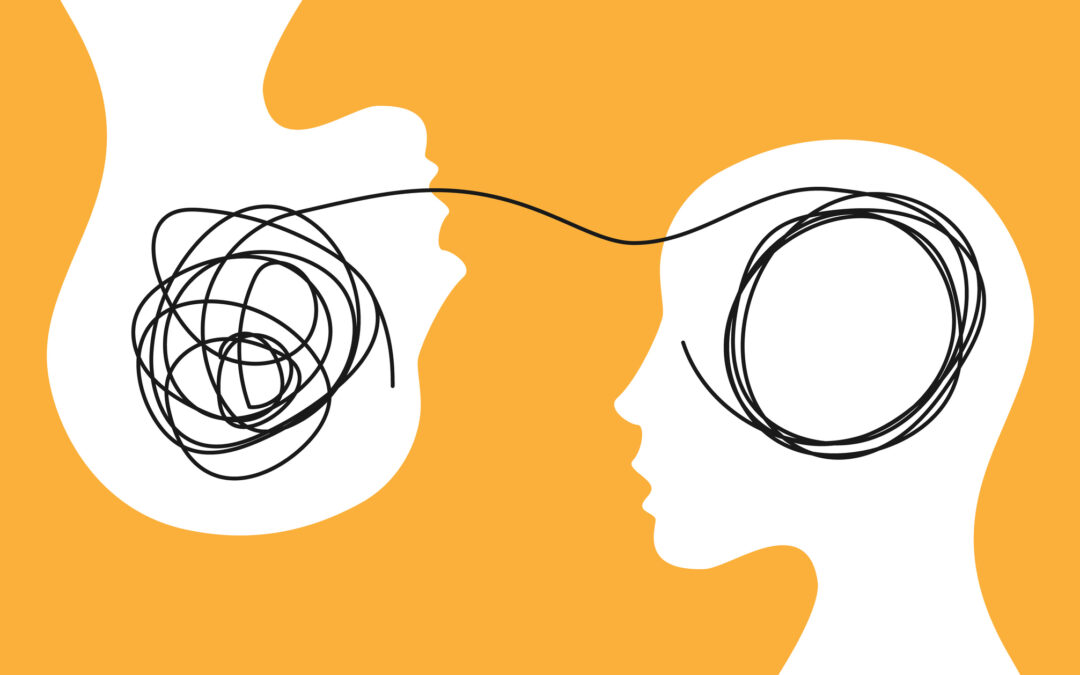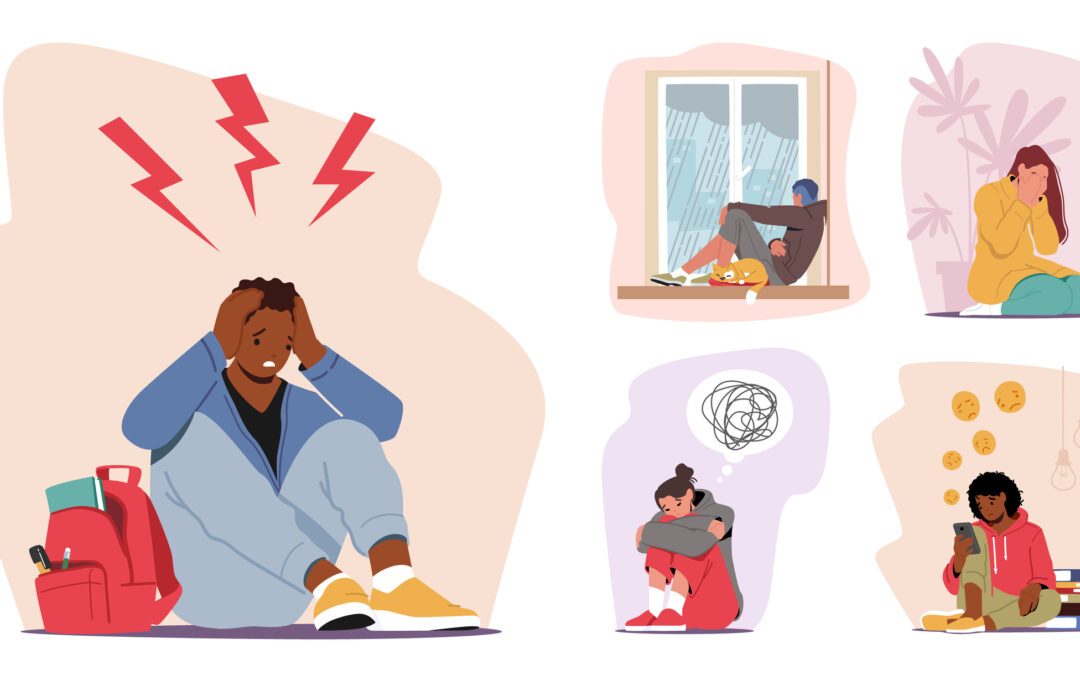Are you feeling weighed down by unresolved trauma? Do you wish there was a quicker way to find relief and start healing? We have exciting news! Star Meadow Counseling is now offering EMDR Intensives, a new and powerful way to process trauma. These extended therapy...

Healing from Narcissistic or Emotional Abuse: A Journey to Rediscovery and Resilience
Abuse, whether labeled as narcissistic or emotional, can leave deep, lasting scars on your self-esteem, sense of self-worth, and overall mental well-being. Many people who have experienced this may feel lost, confused, and question their own reality. If you are reading this and wondering if you have gone through narcissistic or emotional abuse or are looking for help to heal from a harmful or unhealthy relationship. I want you to know that you’re not alone, and there is a path to finding healing and rediscovery.
What is Narcissistic or Emotional Abuse?
Narcissistic and emotional abuse are types of emotional manipulation that involve behaviors like gaslighting, where a person makes you doubt your own perceptions and reality. This kind of abuse can occur in any relationship, including those with parents, siblings, children, partners, and even friends. Over time, this can wear away your confidence and leave you feeling isolated and unsure of yourself. Some common signs of narcissistic or emotional abuse include, but are not limited to:
- Gaslighting: Making you question your reality, memories, and perceptions.
- Manipulation: Using guilt, shame, and fear to establish control.
- Isolation: Cutting you off from friends, family, and support systems.
- Blaming: Making you feel responsible for their problems or emotional state.
- Constant Criticism and Devaluation: Belittling you and making you feel worthless.
- Minimizing or Dismissing Your Feelings: Making light of your feelings, needs, or concerns.
- Love Bombing and Withdrawal: Alternating between excessive praise and affection and sudden withdrawal or silent treatment.
Questions to Ask Yourself
If you’re wondering whether you’ve experienced narcissistic or emotional abuse, here are some questions to help you reflect:
- Do you often feel confused about your relationship and question your own reality?
- Have you felt isolated from friends and family since being with this person?
- Does this person frequently criticize or belittle you, making you feel worthless?
- Do you find yourself doubting your own memories and perceptions because this person tells you they are wrong?
- Do you experience extreme highs and lows in your relationship, with periods of intense affection followed by sudden withdrawal?
- Do you feel like you are walking on eggshells to avoid upsetting this person?
- Have you become dependent on this person’s approval and validation?
Recognizing these experiences is a helpful step towards healing. Remember, the label does not matter as much as acknowledging your experiences and their impact on your well-being.
The Impact of Narcissistic or Emotional Abuse
These effects can be profound and long-lasting. You may feel is if you are a shell of your former self, struggling with low self-esteem, anxiety, depression, and a pervasive sense of worthlessness. You might also find yourself questioning your own judgment or trust in yourself, feeling like you can never do anything right, and fearing that you are somehow to blame for what you endured.
The Journey to Healing
The path towards healing from narcissistic or emotional abuse is truly a journey, and it begins with acknowledging how you are feeling and honoring that you are deserving of love, care, kindness, and support. Here are some ways you can begin your healing process:
- Acknowledge and Validate Your Experience: A key step to healing is recognizing and acknowledging the abuse. Validate your experiences and understand that the abuse was not your fault. You are deserving of love, respect, and kindness.
- Seek a Supportive Community: Surround yourself with supportive and understanding people. This can include friends, family, support groups, and a therapist who focuses in narcissistic and emotional abuse recovery.
- Rebuild Your Self-Esteem: These experiences can often leave you feeling worthless and unworthy of love. Work on rebuilding your self-esteem by engaging in parts of your life that bring you joy and fulfillment, setting healthy boundaries, and practicing self-compassion.
- Reauthor Negative Beliefs: From these relationships you may have developed strong negative beliefs about yourself in your mind. Challenge these harmful beliefs and create ways to reauthor your story with empowering and compassionate beliefs about yourself.
- Establish and Build Your Personal Identity: Reconnect with who you are outside of this relationship. Discover your authenticity, passions, interests, and strengths. Build on this personal identity to create a stronger sense of self.
- Therapy: Working with a therapist who understands narcissistic and emotional abuse can be beneficial. Therapy provides a safe space to process your experiences, develop coping strategies, and work towards building strength and resilience. A significant part of healing involves understanding the inner layers of your experiences and how they have affected you.
If you are finding yourself more curious about whether you have been in or are currently in an emotionally and/or narcissistic abusive relationship, here are more resources to help:
- Recommended book about identifying and healing from narcissistic abuse by Dr. Ramani Durvasula: https://www.penguinrandomhouse.com/books/710202/its-not-you-by-ramani-durvasula-phd/
- Recommended YouTube Channel filled with educational videos surrounding emotional and narcissistic abuse provided by clinical psychologist, Ramani Durvasula, PhD who has extensive years of research and clinical experience with narcissistic abuse: https://www.youtube.com/@DoctorRamani
- The National Domestic Violence Hotline websiteis the official site of the National Domestic Violence Hotline, providing resources, support, and information for individuals experiencing domestic violence and emotional abuse. The site offers 24/7 confidential assistance through phone, online chat, and text services, helping users understand abuse, create safety plans, and connect with local resources.
Emergency Support Resources:
- National Domestic Violence Hotline – 1-800-799-SAFE (7233) or text TELLNOW to 85944
- Clark County YWCA SafeChoice Hotline – 360-695-0501 or 1-800-695-0167
If you are seeking guidance in the areas of narcissistic or emotional abuse recovery, Ellen Bass, LMHCA, offers a compassionate and safe environment to explore these challenges and dedicated to helping you navigate your path to healing. Contact us to schedule an appointment!

Introducing EMDR Intensives

Healing from Narcissistic or Emotional Abuse: A Journey to Rediscovery and Resilience
Abuse, whether labeled as narcissistic or emotional, can leave deep, lasting scars on your self-esteem, sense of self-worth, and overall mental well-being. Many people who have experienced this may feel lost, confused, and question their own reality. If you are...

The Power of Community in Trauma Survivorship
Consistent across human history has been the importance of community. Safety in numbers against a predator, the sharing of resources, or simply holding space for one another are all integral to our survival. Yet, largely, our individualistic culture places emphasis on...

From Pain to Power: The Narrative Trauma Therapy Experience
In the journey of healing from trauma, the power of storytelling is often underestimated. Yet, within the realm of mental health counseling, narrative trauma therapy stands as a profound method for fostering healing and resilience. By harnessing the narrative of one's...

Things You Might Feel Shame For, That Are Actually Very Common!
As therapists, we hear from people in all walks of life. Every client is different and comes to therapy with varied experiences, but one thing remains true; most people hold shame for things they don’t need to. When we feel shame, our brains will often make us think...














